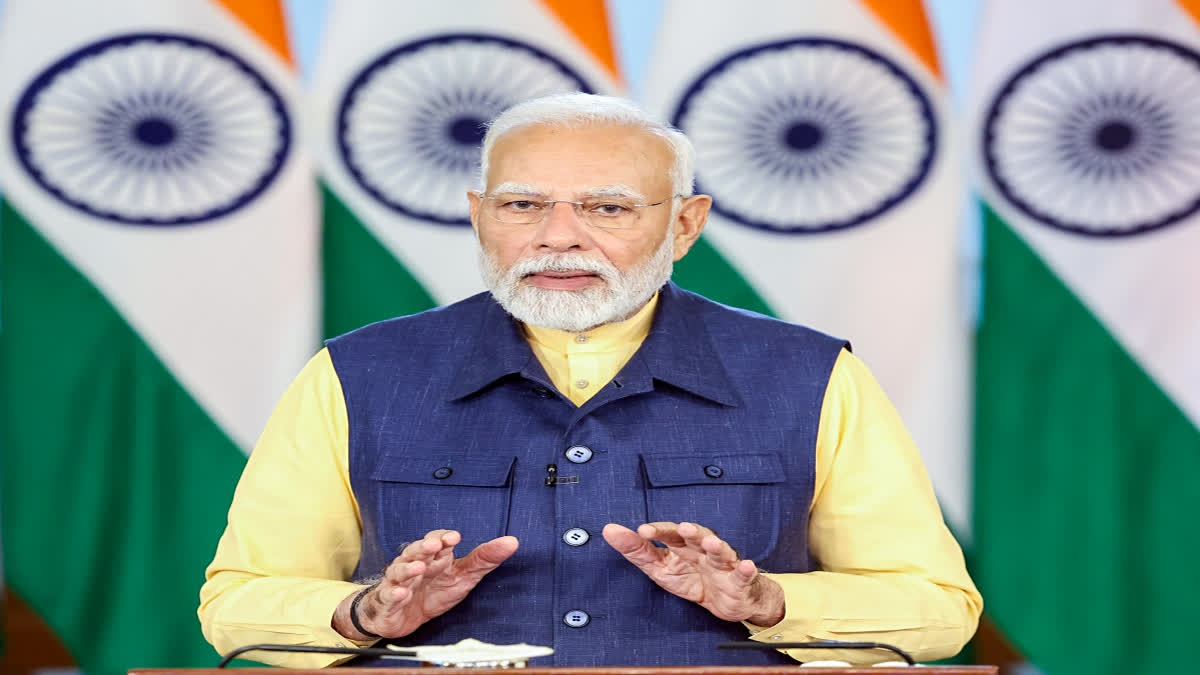New Delhi: The Union Cabinet chaired by Prime Minister Narendra Modi on Thursday approved to confer the status of Classical Language to Marathi, Pali, Prakrit, Assamese and Bengali languages.
Union Minister Ashwini Vaishnaw said, "The Classical Languages serve as a custodian of Bharat's (India's) profound and ancient cultural heritage, embodying the essence of each community's historical and cultural milestone."
The government decided to create a new category of languages as 'Classical Languages' on October 12, 2004, declaring Tamil as Classical Language and setting following as criteria for the status of Classical Language, high antiquity of its early texts/recorded history over a thousand years, a body of ancient literature/ texts, which is considered a valuable heritage by generation of speakers, and the literary tradition must be original and not borrowed from another speech community.
The Union Minister informed a Linguistic Experts Committee (LEC) was constituted by the Ministry of Culture under Sahitya Akademi in November 2004 to examine the proposed languages for the status of Classical Language.
The criteria were revised in November 2005, and Sanskrit was declared as Classical Language, high antiquity of its early texts/recorded history over a period of 1500-2000 years, a body of ancient literature/texts, which is considered a valuable heritage by generations of speakers, the literary tradition be original and not borrowed from another speech community, and the classical language and literature being distinct from modern, there may also be a discontinuity between the classical language and its later forms or its offshoots.
Besides this, the Cabinet also approved the signing of a ‘Letter of Intent’ thus enabling India to join the 'Energy Efficiency Hub'.
India will join the International Energy Efficiency Hub (Hub), a global platform dedicated to fostering collaboration and promoting energy efficiency worldwide. This move solidifies India's commitment to sustainable development and aligns with its efforts to reduce greenhouse gas emissions.
Established in 2020 as the successor to the International Partnership for Energy Efficiency Cooperation (IPEEC), in which India was a member, the Hub brings together governments, international organisations, and private sector entities to share knowledge, best practices, and innovative solutions.
By joining the Hub, India will gain access to a vast network of experts and resources, enabling it to enhance its domestic energy efficiency initiatives. As of July, 2024, 16 countries (Argentina, Australia, Brazil, Canada, China, Denmark, European Commission, France, Germany, Japan, Korea, Luxembourg, Russia, Saudi Arabia, United States and the United Kingdom) have joined the Hub.
As a member of the Hub, India will benefit from opportunities for collaboration with other member states, sharing its own expertise and learning from international best practices. The country will also contribute to global efforts to address climate change by promoting energy-efficient technologies and practices.
The Bureau of Energy Efficiency (BEE), the statutory agency, has been designated as the implementing agency for the Hub on behalf of India. BEE will play a crucial role in facilitating India's participation in the Hub's activities and ensuring that India's contributions align with its national energy efficiency goals.
By joining the Hub, India is taking a significant step towards a more sustainable future. The country's participation in this global platform will help to accelerate the transition to a low-carbon economy and improve energy security.
Meanwhile, in recognition of the excellent performance by the Railway staff, the Union Cabinet approved payment of PLB of 78 days for Rs 2028.57 crore to 11,72,240 railway employees.
The amount will be paid to various categories of Railway staff like Track maintainers, Loco Pilots, Train Managers (Guards), Station Masters, Supervisors, Technicians, Technician Helpers, Pointsman, Ministerial staff and other Group C staff. The payment of PLB acts as an incentive to motivate the railway employees for working towards improvement in the performance of the Railways.
Payment of PLB to eligible railway employees is made each year before the Durga Puja/ Dusshera holidays. This year also, PLB amount equivalent to 78 days' wages is being paid to about 11.72 lakh non-gazetted Railway employees.
The maximum amount payable per eligible railway employee is Rs 17,951 for 78 days. The above amount will be paid to various categories of Railway staff like Track maintainers, Loco Pilots, Train Managers (Guards), Station Masters, Supervisors, Technicians, Technician Helpers, Pointsman, Ministerial staff and other Group 'C staff.



